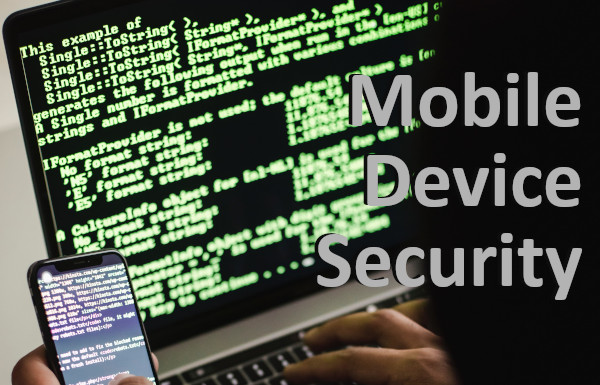Cybersecurity researchers uncovered that mobile malware attacks surged by 500% a the start of 2022. This is alarming both in scale and the fact that many people are not yet protecting their smartphones. Year after year, mobile phones have become more powerful and today can do many of the same functions as a computer – just with a much smaller screen. But people tend to secure their computers much better than they do with their smartphones and this needs to change as over 60% of digital fraud now occurs through mobile devices! This makes all mobile devices a high risk if proper safeguards are not followed.
Tips on how to Improve the Security of Your Mobile Device
1. Use Security Software
Just like your computer, your mobile phone needs antivirus / anti-malware security software as malware can and does infect smartphones and tablets. You need to ensure you have a reliable mobile anti-malware app installed and beware of those free versions. Free apps can hide malware or install other unwanted software.
2. Do Not Download Apps from Unknown Sources
Only download apps from trusted sources. Don’t download outside a main app store. Trusted app stores include:
- Apple App Store
- Google Play
- Amazon Appstore
- Microsoft Store
You also should research the app developer online. Make sure they have a good reputation. Once you download a dangerous app to your phone, it can infect it with malware. That malware can remain behind even if you delete the app later.
3. Beware of Smishing (ie SMS Phishing)
Smishing is the text version of phishing, where the text message contains one or more malicious links. A hacker can potentially infect your device if you click the links. The message may also ask you to send back personal or confidential information. Lookout for any text messages that do not quite make sense (ie a shipping notification when you have not ordered anything or from a different courier company).
Phishing via text message is a growing concern. as most people are not aware of them yet and often get caught in their trap.
4. Don’t Assume Email is Safe
Many people now check email on their phone as it is very convenient, especially when they are out of the office, but this can cause issues:
- People may also be in a rush when out of the office and thus may miss tell-tale signs of security issues.
- They may be using less secure devices (mobile phones, tablets, home computers etc).
- You can’t easily hover over a link in an email to doublecheck the link
- It can be harder to properly see the types of attachments.
If you see something questionable and want to check the link, open the email on your PC where you can do that or ring the sender for confirmation.
5. Update Your Devices
Just like performing updates on your computer, you need to regularly update your mobile devices. Not installing updates can mean your phone has vulnerabilities which allow hackers to breach your data, so keep all your devices up to date.
6. Delete Old Apps
Apps are often abandoned by the developer and / or haven’t had any updates for years. This leaves security vulnerabilities on your device and hackers seek out these exploits. If they are not addressed, they remain a danger and casue your device to be vulnerable.
There is no reason to keep old and unused apps, so go through your device and remove any that you are no longer use. For apps you still use, check to see if there are updates available and perform the updates.
7. Use Mobile Data or a VPN When Working Offsite
Public Wi-Fi is dangerous and a lot of people don’t understand the risks or just connect to it out of convenience. You may worry about your data plan limits, your mobile reception may be poor or the speeds are slow so you find it easier and more convenient to connect to a public hotspot. But you don’t know who operates the public hotspot, if they are monitorng traffic or even spreading malware through the network.
Our recommendation is to only use your mobile phone carriers network. If you need to connect to an unsecured public hot spot then use a VPN. VPNs stand between your device and the internet and route your data through a secure server. This keeps it away from any prying eyes that may be lurking on that public Wi-Fi.
Mobile Security Solutions to Prevent a Data Breach
Do not wait until your phone is infected with malware to secure it properly. We can help you with solutions that protect your device, accounts and data. Contact us to schedule a no obligation consultation.

